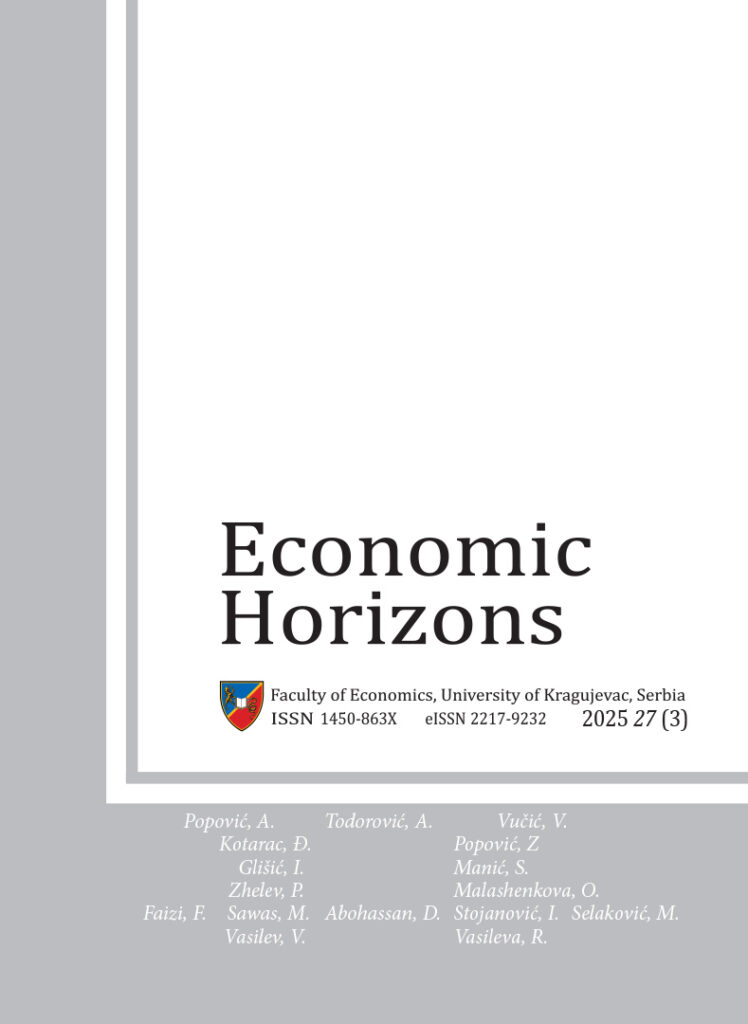
THE JOURNAL IS PUBLISHED
THREE TIMES A YEAR
in April, August and December
Goran Nikolić1 and Predrag Petrović2
1 Institute of European Studies, Belgrade, The Republic of Serbia
2 Institute of Social Sciences, Center for Economic Research, Belgrade, The Republic of Serbia
The International Monetary Fund (IMF) forecasts a gradual slowdown in the, otherwise strong, growth of the Chinese economy in the first half of the 2020s, and the anemic growth of the Western economies: the US and, especially, the EU27. Given the practical (and symbolic) importance of reaching ‘the number one economy’ status, the primary objective of the paper is to estimate the GDP (and the GDP PPP) of the observed economies over the next decade. The main contribution and finding of this paper is the estimation of future GDP trends for the US, China and the EU27 in the period 2025-30, based on the previous trends and the IMF 2020-24 projections. China’s economy will become globally leading in 2029-2030. The basic research hypothesis is proven, given the fact that a change in the global economic position implies significant geopolitical consequences. Namely, while the US will almost certainly remain the leading global power in the 2020s, with the EU still continuing to focus on itself, China’s economic growth will have rising global consequences, fueling the move towards the dispersion of authority. This conclusion is in line with the claims of the majority of the relevant authors who emphasize the increasingly limited possibility of the US unilateral actions.
Keywords:
JEL Classification:
Since March 2015, the Journal is indexed in DOAJ
Since November 2013, the Journal is indexed in ProQuest – ABI/INFORM
Since October 2013, the Journal is indexed in Cabell’s Directories
Since September 2013, the Journal is indexed in Index Copernicus Journals Master List 2012
Since March 2013, the Journal has been evaluаted and accepted for listing in EconLit (American Economic Association Publications)
Since January 2013, the Journal has been included into EBSCO’s databases
Since November 2012, the Journal has been included into Ulrich’s Periodicals Directory
Since March 2015, the Journal is indexed in DOAJ
Since November 2013, the Journal is indexed in ProQuest – ABI/INFORM
Since October 2013, the Journal is indexed in Cabell’s Directories
Since September 2013, the Journal is indexed in Index Copernicus Journals Master List 2012
Since March 2013, the Journal has been evaluаted and accepted for listing in EconLit (American Economic Association Publications)
Since January 2013, the Journal has been included into EBSCO’s databases
Since November 2012, the Journal has been included into Ulrich’s Periodicals Directory